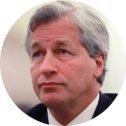Summer is rarely a good time for investment banking. Holidays beckon, investors down tools and activity tails off. In good years, a quiet third quarter follows a robust second quarter and precedes a successful end of year. But this year is proving to be tougher than most, particularly for banks' sales and trading arms.
Third-quarter figures were almost uniformly bad. Morgan Stanley reported a more than halving in fixed-income net revenues to $846m, compared with the third quarter of 2009, while revenues from equity sales and trading fell 23% to $925m. At Goldman Sachs, net revenues from fixed income were 37% lower at $3.8bn, while equity net revenues were 33% lower at $1.9bn.
Barclays Capital, Credit Suisse, Deutsche Bank, JPMorgan, UBS and others all suffered from a reduction in trading revenues and admitted that the environment was tough.
"The summer months were hard, especially July and August, but they came after a lacklustre May and June, which obviously did not help," says Jon Peace, banking analyst at Nomura.
Woe on woe
Seasonality plays a role but a number of other factors have added to banks' woes in recent months. Some of these may be cyclical but others are almost certainly more permanent, structural shifts.
"Usually, in investment banking, there is sufficient diversification that if one area is suffering, another will pick up the slack. But nothing is really performing well today so there have been disappointing results across the sector," says Teddy Moynihan, a partner at consultancy Oliver Wyman.
Banks were not as forthcoming. Most of the banks approached to discuss what Q3's trading results mean in the long term declined to comment.
Fixed-income, currencies and commodities (FICC) have been particularly hard hit. First, 2009 was an exceptionally good year for this business area, so comparisons are bound to disappoint.
"Most people expected revenues to be significantly down this year, coming off an incredible high point in 2009. Market participants would have budgeted on the basis of revenues being 20% to 30% lower but they would have hoped to be surprised on the upside. This has not happened," says Mr Moynihan.
The European sovereign debt crisis has not helped either. Extreme volatility throughout the spring months sent investors scuttling to the sidelines. Many of them have yet to return, concerned by ongoing uncertainty across the eurozone.
"Volatility was so intense that the market experienced a degree of paralysis as institutional and retail investors took fright. Private banks have been reporting sharply lower trading volumes as a result," says Mr Peace.
Jon Peace, banking analyst at Nomura
Equity markets
Equity market activity has also been slow. The business is closely linked to economic growth, which continues to be sluggish across the developed world. Cash equities have been disappointing and allied activities, such as mergers and acquisitions and initial public offerings, have suffered too.
"Most people expected a bumpy ride but it has been bumpier than we thought on both the primary and secondary markets," says one banker.
Optimists believe trading is cyclical by nature and that activity will pick up as the US and European economies begin to show sustained recovery. Even in recent weeks, there have been signs of increased business, prompting forecasts that the fourth quarter of the year will be considerably stronger than the third.
Bill split (l-r): US president Barack Obama, Democrat outgoing speaker of the house Nancy Pelosi and incoming speaker of the house John Boehner. It is likely that the new Republican majority will seek to make significant amendments to the Dodd-Frank Act, throwing the trading sector into further confusion
Gone for good?
But there is little doubt that certain areas of the market are at best in deep hibernation, at worst comatose. Structured equity products for retail investors and complex securitisations on the fixed-income side have completely lost their appeal, for example, and it is questionable whether they will ever regain their lustre. This is unfortunate for banks, as such products were not only stimulating to construct but highly profitable to sell. Looking to the future, however, they are under pressure on two fronts - investors are concerned by complexity and regulators are completely averse to it.
Basel III regulations leave little room for ambiguity. Banks will need to set aside more capital against products such as securitised debt or long-dated structured derivatives. In other words, the cost of involvement in these areas will rise so the benefits will be increasingly elusive.
"Basel III encourages banks to focus on asset-light activities, such as cash equities and wealth management," says Mr Peace.
The problem is that, even if the capital requirements are relatively light on cash equities and other, plain vanilla businesses, they do not deliver the same margins as more complex instruments.
"It's going to be very difficult to deliver an attractive return on equity. RoE will go down as capital requirements rise and this may prompt investors to ask whether they either want or need to invest in the industry," says Mr Moynihan.
Back in 2006, investment banking delivered an extremely generous average return on equity of 29%. A large chunk of this was driven by trading. Analysts forecast this could drop to 13% by 2012, which is broadly the cost of capital. For most institutions, this is completely unsustainable.
"Investment banks need to target returns in their mid-teens so the costs will be borne by customers, shareholders and employees. It is just not clear yet who will be hardest hit, but none of these groups will be immune," says Mr Peace.
Nor is Basel III the only piece of legislation likely to hit banks' trading arms. In the US, the Volcker proposal prohibits banks from engaging in proprietary trading unless it is on behalf of clients, and the Dodd-Frank Wall Street Reform and Consumer Protection Act states that swaps should no longer be traded over the counter, but should be brought on exchange to increase transparency and reduce risk.
For banks trying to budget for the future, the Dodd-Frank proposals present serious problems, not least because many of them are enthusiastically endorsed in Europe. The sweeping gains made by the Republicans in the US mid-term elections in November unsettle the situation further, prolonging the amount of time necessary to have the act endorsed and making it highly likely that the end result will include significant amendments. Simply put, nothing is certain.
JPMorgan Chase chairman and chief executive Jamie Dimon admitted earlier this year that the shift to central clearing of derivatives could have "a revenue impact of maybe $1bn". The figure is huge in absolute terms but seems less shocking when set against average annual revenues for the bank of about $25bn.
In the same comment, Mr Dimon argued that greater transparency could increase volumes, which should offset higher capital costs, saying: "There are potential positive offsets. Some of these things will create more volume. The capital impact for dealers is unclear but likely to be positive."
"There may be some increase in business but it is unlikely to make up for the high margins banks have been earning in this area," says one analyst.
Trading restrictions
Proprietary trading restrictions may be less worrisome. First, most banks have already reduced this activity so it accounts for less than 10% of overall business, and in many cases significantly less than that.
Second, it is notoriously hard to distinguish from the outside what business is pure 'prop' trading and what is trading on behalf of clients, especially as this invariably involves taking on risk, even if only for short periods.
Nonetheless, the regulatory environment is hostile, to banks in general and trading business in particular. The mood is also pervasively more risk averse as banks respond to regulators' concerns about over-leverage and shareholders concerns about effective risk management.
"Banks are much more focused on the risks they are taking and the amount of balance sheet they use. There has been a big reduction in carry trades and more of a focus on client activity," says one analyst.
Ironically, this may increase volatility in the future. Carry trades may have cost banks dearly during the financial crisis but in more benign times, they provide a steady - and often sizeable - contribution to the bottom line. Without them, trading desks are more reliant on client enthusiasm for position-taking - and right now, many clients are keen simply to hold positions in the safest assets they can find.
Teddy Moynihan, a partner at consultancy Oliver Wyman
Headcount reduction
Against this backdrop, severe headcount reductions might seem the obvious solution. But there are reasons to suggest this may not be the most widely adopted response.
"There is a strong incentive to hold onto teams for a while longer. A lot of restructuring has already gone on and you cannot shrink to success in a low-margin environment. Demand for high-margin products is low, flow products are more fashionable but if you want to be a flow master, you have to have a global platform," says Mr Moynihan.
This may mean that the most successful banks in the future are either niche players or extremely large global entities. The middle ground will not be a comfortable place to be.
"In the post-crisis regulatory environment, trading market share will become increasingly concentrated. Only the largest players will be able to generate revenues of sufficient scale to turn an economic profit," says Matt Clark, banking analyst at Keefe, Bruyette & Woods.
This may mean that banks try to reduce pay rather than reduce numbers, a move that will satisfy politicians as well as investors.
"Some banks are already adjusting to an environment where returns are lower, by reducing infrastructure and operational costs, including compensation. There is little doubt that payouts will be lower in the future than they were," says Mr Moynihan.
Jamie Dimon, JPMorgan Chase chairman and chief executive
No going back?
Even the most sceptical followers of the investment banking industry would not write off trading for good on the basis of a couple of bad quarters. But there is little doubt that fundamental changes in regulation, legislation and risk management could have long-term implications for the trading business.
Taken together, these are almost certain to mean a decline in trading revenues and a corresponding reduction in overall compensation. Whether that means fewer employees overall, fewer employees in certain areas or lower pay remains to be seen. But trading desks are likely to face a challenging environment, at least until the next boom.










